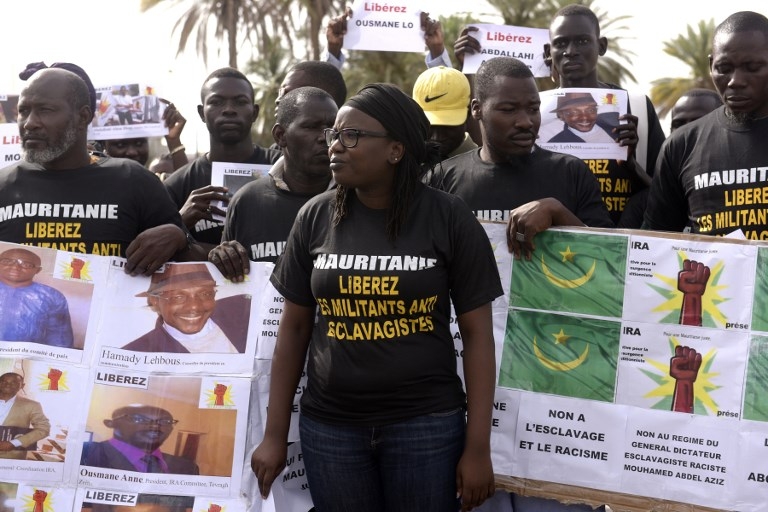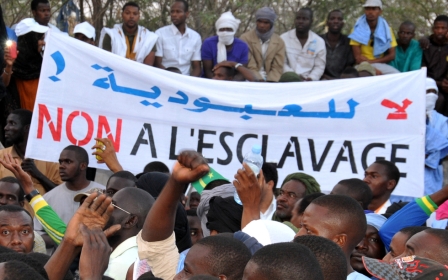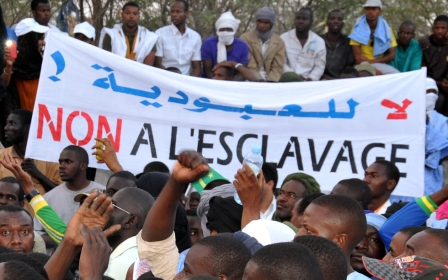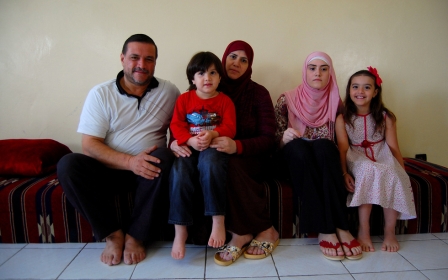Mauritania says US anti-slavery visit 'illegal'

The west African state of Mauritania on Saturday attacked US anti-slavery campaigners to whom it had denied entry, saying their trip would have violated the law.
A dozen campaigners landed at Nouakchott airport on Friday for a week-long visit but were refused visas, a local anti-slavery NGO said earlier.
Slavery was officially outlawed in Mauritania in 1981 but remains entrenched in a hereditary system of servitude.
"We told the American embassy, which gave us the delegation's programme, that entry visas would not be issued because we consider the programme to be in breach of Mauritanian law," government spokesman Mohamed Lemine Ould Cheikh, who is also culture minister, told AFP.
"There were no consultations with the [Mauritanian] authorities over the programme, as is customary, and it consisted only of meetings with targeted parties who are working on a specific agenda," Ould Cheikh said, without giving further details.
Slavery is ingrained in Mauritania. Light-skinned Berber Arab Moors enslaved local black populations after settling in the vast, largely desert nation centuries ago.
Servitude persists today under a hereditary system in which members of the "slave" caste work without pay as cattle herders and domestic servants, in spite of an official ban.
The trip was organised by a Chicago-based anti-slavery group that is part of US pastor Jesse Jackson's Rainbow/PUSH Coalition.
The campaigners' schedule included meetings with Mauritanian and US embassy officials and members of civil society.
Ould Cheikh contended that the visit would have been divisive.
US ambassador surprised
"The [country's] slavery programme concerns all Mauritanians, and they must be brought into the debate which concerns them," he said.
"Our laws reject communitarism [and] ethnocentrism, and work for unity, for strong relations between national communities. This is why we refused to admit this delegation."
He added: "Several other American human rights organisations, including State Department missions, have stayed in Mauritania and been welcomed adequately."
During a meeting on Saturday with a local anti-slavery group, SOS Esclaves, the US ambassador to Mauritania, Larry Andre, said he was surprised by the visa refusal.
The delegation's priority was to "meet and exchange views with the Mauritanian authorities on the issue of slavery," he said.
The Australia-based Walk Free Movement estimated in its 2014 Global Slavery Index that there were 156,000 slaves in Mauritania, or about four percent of the population.
In August 2015, the country passed a law that doubled prison terms for slavery, with up to 20 years in jail.
That move sparked hopes the government was getting serious about cracking down on the practice.
New MEE newsletter: Jerusalem Dispatch
Sign up to get the latest insights and analysis on Israel-Palestine, alongside Turkey Unpacked and other MEE newsletters
Middle East Eye delivers independent and unrivalled coverage and analysis of the Middle East, North Africa and beyond. To learn more about republishing this content and the associated fees, please fill out this form. More about MEE can be found here.




